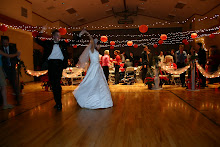Disclaimer: I hesitate to write this post because I fear that I may offend my Korean associates if they chance upon this site. Please know beforehand that I have high respect for my Korean friends and students. There are some points of ideological differences that I wish to address between the West and Korea, though.
Korean protests over American Beef
 American Beef Imports
American Beef Imports
Because I was previously unaware of the Korean ban on importing American beef, I was surprised a few months ago when a large number of my students (at the Korean International School) talked incessantly about eating, and then dying from, US imported beef. As they wrote sentences to practice the new grammar patterns, many of them alluded that American beef is, in fact, the greatest threat to life itself. American beef is the devil.
I soon learned that the new controversial Korean president had signed a bill to overturn the American beef ban despite widespread fears of Mad Cow Disease. Apparently, the media has determined that President Lee cares more about Korea's relations with Washington than the Korean health issues. They also added rhetoric to spark widespread action that he cares nothing for the safety of thousands of school children who would literally go insane from the beef he sends to primary schools because he hates school children. Well, isn't it obvious? And it seems that the masses ate up the media's claims; millions have hit the streets over the past few months to shout their beef with US beef.
Korean Pseudo-science Perpetuated by the Media
The issue (in combination with other ones I've recently heard) sparked my curiosity about Korean logic and beliefs to a whole new degree. At work, I often hear about questionable Korean scientific conclusions which have been 'proven' by the all-knowing Korean scientists, like:
1) Kimchi cures bird flu, SARS, and most other diseases,
2) if you don't blow-dry your hair before bed, you'll get chronic headaches for the rest of your life,
3) tongue-cutting--if you cut the piece of tissue that connects your tongue to the bottom of your mouth, you will not have a Korean accent when you speak English (many parents will do this to ensure good English skills in their kid's future)
4) if you aren't in a deep REM cycle by 10pm you'll be short in stature when you grow up (my office-mate is vehement about this with her three children and she strongly appeals to science to prove it),
5) fan death--if you sleep with a fan on in an enclosed room, you'll die (the fan steals all the oxygen causing you to suffocate; Korea regulates that fans actually have timers installed as a safety device; the media actually reports cases of fan death often on news programs)... The multiple times I've questioned Koreans I know about their sources on these issues, they are quick to declare that it's all been proven with scientific evidence, though they don't know anything about the specifics. When I've asked who proved it, they say, "the scientists!" (And yet Korean students' math and science test scores are among the highest in the world. Explain that one to me.)
The multiple times I've questioned Koreans I know about their sources on these issues, they are quick to declare that it's all been proven with scientific evidence, though they don't know anything about the specifics. When I've asked who proved it, they say, "the scientists!" (And yet Korean students' math and science test scores are among the highest in the world. Explain that one to me.)
What's the risk?
World statistics list 208 victims of variant Creutzfeldt-Jakob Disease (Mad Cow Disease) from 11 countries since the disease was first reported in 1996, according to the Centers for Disease Control and Prevention website. Only three of the cases were in the US. Two of the three almost certainly contracted the disease in the UK (due to the fact that they had not been in the US long enough for the 10 year incubation period by the time of diagnosis). The third person very likely ate contaminated beef in Saudi Arabia. (His history does include annual trips to the US, allowing for a slight possibility that he contracted the disease in the US.)
With nearly 100 million cows in the US (and millions more that have been slaughtered since 1996), and only one possible domestic CJD case existing in the history of the US, I feel safe in concluding that there is a significantly low risk to eat American beef. Though Koreans have demonstrated their excitability over many issues of seemingly small importance, this one has created the need for a significant riot police presence to quell the masses... How could such a slight health risk incite such restlessness... unless it is about something other than beef, right?
 What's it really about?
What's it really about?
I've read many arguments from both Koreans and foreigners alike who claim the protests are not so much about the beef, but as an outlet to express their discontent with their newly-elected President Lee Myung-bak. Other people argue that they fear importing American beef will disturb the pricey Korean beef industry, which they have tried hard to protect by limiting imports in order to keep prices high. I agree with them that the issues run deeper than health concerns.
Of course, Westerners and Koreans have a very different way of problem-solving. Being Western-educated, I think it is much more reasonable to be upfront, direct, and honest about issues to get the desired result. After working at the Korean International School, I realize that it is usually impossible to do this in Korean circles because of cultural restraints; directness is often associated with aggressiveness, which is widely frowned upon in Korean social situations. It is true that many people recognize that there are deeper reasons to protest US beef, but in my experience, I still believe that most of them view the deeper problems only as side-issues to the main health concern, of course perpetuated by claims from the media.
So, to me, it seems like the media is implementing this propaganda campaign in order to mask their discontent with the real issues in their political fight, by controlling the malleable population like a marionette. The media knows how and what strings to pull to get them to act, which has a powerful effect because the real issues alone won't unite the masses enough to get them out on the streets; there needs to be an overlying threat to Korea, so they sensationalize it. Back to the Beef: Korean DNA
Back to the Beef: Korean DNA
The media, no doubt in cahoots with "the scientists," went as far to blame weak Korean DNA as a cause for national panic. They claim that Koreans are more susceptible to Mad Cow Disease than any other race, even though no Korean anywhere in the world has ever contracted it, even among the Korean-American population. When a prominent Korean-American (and US Beef eater) in the L.A. area spoke up to disprove the claim, he was quickly labeled as a puppet of American ideals and a hater of the interests of the Motherland. I've also heard accounts (though I haven't seen the source myself) that the media has purported that this is a Washington scheme to weaken the Korean race, and slowly eliminating them. Now, if that were true, I would join the riots myself.
Result
How serious has it gotten? Well, people have been protesting and demanding changes since April. The Prime Minister and his cabinet offered to quit in order to take the blame away from the President. President Lee's approval rating dropped under 20% after only four months in office. Just yesterday, President Lee finally dismissed three top ministers in a desperate grab for an image change. The media has accomplished their goal in cunningly directing the public to fight their political battles. Seoul is in chaos. The riot police have gotten a lot of practice in crowd control. Koreans feel empowered in their anti-American sentiment. I am determined never to live in Korea. Their country is safe from Mad Cow Disease.
Bonus:
The following sentences are quotes from my writing students about the issue. While I understand that they are only high school students, their attitudes echo that of their countrymen. These convictions have infiltrated the entire education system and are not questioned by any other Koreans.
"As the government is asserting to harm the health of the citizens and the economy of Korean beef, Korean people will not stop to parade on the street until their requirements would be accepted."
"It is very dangerous to people. If you eat American beef, you must die."
"Korean's DNA is clearly weak with mad cow disease. Scientists found that Koreans have more opportunities to get mad cow disease."
"Koreans are the easiest to suffer mad cow disease of the world people." "Therefore, Korea population will be less and less."
"Korean's DNA is weak with mad cow disease."
"People won't import American beef because it is not safe at all."
"First of all, American beef contains BSE which causes mad cow disease."
"In addition, these imported cows are not only used in the restaurant, but also in daily necessities, for example, in spices and diapers." (huh???)
"According to the scientists, Koreans have the highest rate of getting mad cow disease than any other people."
"At least 300 people have died out of MCD in America, but if they import it to Korea--who has the highest rate of getting mad cow disease--there is no guarantee that they will not get disease." (really only 208 in the world)
"Most American beef which comes to Korea has mad cow disease."
"The government said that they will spread American beef because lots of kitchens in schools, companies and restaurants."
"American beef can keep friendly relationship with America, but it can't defend the country and citizens."
"They are mad cows; it will kill many people."
"The cows that we plan to import have mad cow disease. It will give the disease to many people."
"Korea is the only country that still imports American beef."
"Koreans have the highest percentage of getting mad cow disease."
pictures are taken from (a great article!): http://www.boston.com/bigpicture/2008/06/south_korean_protests_over_us.html
Monday, July 07, 2008
Where's the Beef? Korean Beef Imports
Posted by Kyle at 12:36 AM
Subscribe to:
Post Comments (Atom)












1 comments:
Hiep... it's me Kien. It has been so qua lau qua nhieu qua lau lam di that I bet you have wondered if I was a victim of beef or fan.
In a conversation tonight, we brought up you and your family, and Monica said, "I wonder if they have a blog..." I said, "They do... let's find it." And then she said I said we said they said we said - and here you are.
We're thinking about moving to China for a while - do you know anyone who knows anything about what that might be like?
Your family looks great. Travel home soon and safely, and tell us where you're going to be.
Wo men thuong y'all.
Post a Comment